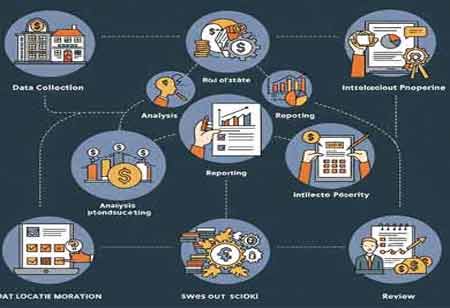CLOSE
Specials
- RegTech Europe
- Financial Risk Management APAC
- Investment Banking APAC
- Corporate Advisory APAC
- Regtech APAC
- Escrow Services
- Digital Banking Latam
- Trading Solutions APAC
- Treasury Management Europe
- CPA Firms Canada
- Financial Risk Management Europe
- Mortgage Broker
- Financial Licensing Europe
- RIA Advisory Europe
- FinTech Canada
- Financial Asset Management APAC
- Investment Banking Canada
- Payment Solution
- Lending Mangment Latam
- Payment Solution Europe
- Broker Dealer Firms Canada
- Alternative Investments Canada
- Financial Fraud
- Investment Management Latam
- Financial Health Europe
- Lending mangment
- Financial Marketing
- Proprietary Trading Europe
- Wealth Management
- FinTech
- Financial Brokerage Firm APAC
- Investment Advisory Europe
- Investment Advisory APAC
- Wealth Management MENA
- Claim Adjusting
- Claim Adjusting APAC
- Mergers and Acquisitions Consulting APAC
- Equipment Financing
- CPA Firms
- Mergers and Acquisitions Consulting Canada
- Investment Services
- Valuation Services Canada
- Wealth Management APAC
- Broker Dealer Firms
- Debt Collection Agencies
- Mergers and Acquisitions Consulting
- FinTech Europe
- Fintech Latam
- Financial Planning / Retirement
- Investment Management
- Financial Compliance
- Digital Banking Europe
- CFO Services
- Debt Collection Agencies Europe
- Wealth Management Europe
- Mergers and Acquisitions Consulting Europe
- Financial Restructuring Europe
- Financial Portfolio Management Canada
- Business Loan
- Payment and Card Latam
- Wealth Management Latam
- Mergers and Acquisitions Consulting Latam
- Tax Advisory Canada
- Trading Solutions Europe
- Alternative Investments
- Digital Insurance Europe
- Investment Services Latam
Weekly Brief
×Be first to read the latest tech news, Industry Leader's Insights, and CIO interviews of medium and large enterprises exclusively from Financial Services Review
Thank you for Subscribing to Financial Services Review Weekly Brief
Debt Collection's Impact on Europe's Economic Landscape
Debt collection serves as a fundamental pillar within the framework of the European economy, exerting profound influence across multiple spheres, ranging from individual

By
Financial Services Review | Wednesday, February 21, 2024
Stay ahead of the industry with exclusive feature stories on the top companies, expert insights and the latest news delivered straight to your inbox. Subscribe today.
Debt collection is crucial for the European economy, impacting GDP, employment rates, and consumer expenditure. Efficient debt management promotes credit availability and GDP growth, while inefficient practices hinder the functioning of the financial system.
FREMONT, CA: Debt collection serves as a fundamental pillar within the framework of the European economy, exerting profound influence across multiple spheres, ranging from individual financial well-being to overarching macroeconomic metrics such as GDP, employment rates, and consumer expenditure patterns.
Debt Landscape in Europe
In previous years, total household debt in the Eurozone reached €12.2 trillion, representing 89.6 percent of the region's Gross Domestic Product (GDP). This substantial figure underscores a notable reliance on credit within European households. Although non-performing loan (NPL) ratios have shown improvement since the 2008 financial crisis, specific countries, such as Greece, Cyprus, and Italy, continue to grapple with elevated NPL ratios, posing potential threats to financial stability.
The composition of debt within the Eurozone reveals a significant presence of consumer debt, encompassing mortgages, personal loans, and credit card obligations. While business debt contributes significantly to driving economic activity, it necessitates vigilant monitoring to mitigate associated risks. In navigating the complex landscape of household debt, maintaining a balanced perspective on consumer and business debt remains crucial for sustaining financial stability within the Eurozone.
Impact on GDP
Effective debt collection is crucial for fostering credit availability and encouraging lending institutions to extend loans with favorable terms, stimulating economic activity and contributing to GDP growth. Conversely, high non-performing loans (NPLs) and inefficient debt collection practices can impede the smooth functioning of the financial system. This may result in restricted credit availability and hindered investments, negatively impacting overall economic growth and GDP. Additionally, a burden of excessive household debt can lead to reduced consumer spending and diminished investment, further dampening economic activity and exacerbating the challenges associated with debt overhang. Therefore, maintaining efficient debt collection processes is imperative for sustaining a healthy financial environment and promoting economic vitality.
Employment and Labor Market
Elevated levels of indebtedness pose a considerable challenge to household financial stability, compelling individuals to allocate resources toward debt servicing at the expense of discretionary expenditures. Consequently, this shift in consumer behavior may result in diminished demand for goods and services, exerting adverse effects on businesses and potentially culminating in workforce reductions. Moreover, the ramifications extend to the realm of financial stress, where the burden of debt negatively impacts employee morale and productivity, thereby impinging on overall workplace performance and, in turn, potentially hindering broader economic growth. Notably, the debt collection industry, tasked with managing these financial challenges, significantly contributes to overall employment levels, thereby playing a noteworthy role in shaping the employment landscape.
Consumer Spending
Effective debt management is essential for maintaining a healthy economy. Elevated levels of debt can curtail discretionary spending, thereby diminishing consumer demand for goods and services, which, in turn, can have cascading effects across diverse economic sectors. Furthermore, streamlined debt collection practices enhance creditworthiness, facilitating consumer credit access. This access empowers individuals to make significant purchases, such as cars and homes, stimulating consumer spending. Additionally, fostering confidence among consumers is pivotal in influencing spending patterns. Through adept debt management and improved financial literacy, individuals can bolster their confidence, fostering responsible and sustainable spending habits that contribute positively to the economic landscape.
Latest Developments and Insights
Within the regulatory landscape, the European Union actively enforces measures such as the Consumer Credit Directive and the Mortgage Credit Directive, demonstrating a commitment to fostering responsible lending and debt collection practices. Concurrently, technological advancements are reshaping the debt collection landscape as fintech solutions gain prominence, contributing to heightened efficiency and transparency. In parallel, there is a notable emphasis on financial inclusion, with initiatives focused on enhancing financial literacy and advocating responsible debt management gaining momentum throughout Europe. Collectively, these developments underscore a comprehensive approach to navigating the financial landscape with a commitment to regulatory compliance and technological innovation while simultaneously promoting financial inclusivity and responsible debt practices.
Debt collection is a pivotal and intricate component of the European economic landscape. Its proficient execution can bolster economic growth, foster employment opportunities, and stimulate consumer expenditure. However, it also engenders challenges such as elevated NPLs and burdensome debt levels. Recognising the nuanced interplay of these factors and instituting robust regulatory frameworks and practices are imperative for fostering a resilient and sustainable European economy.

Copyright © 2025 Financial Services Review. All rights reserved





